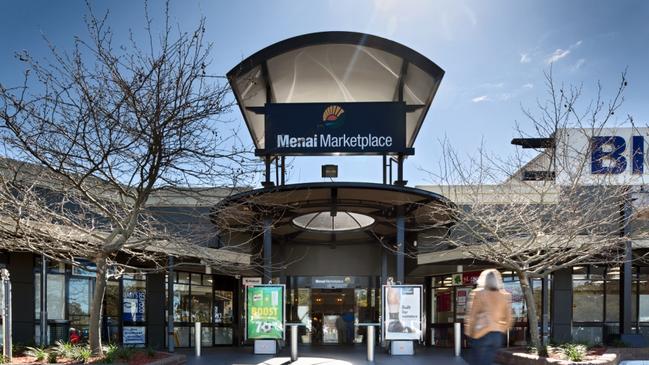Going the distance: big institutions chase last mile edge
The best properties are now the small warehouses that give e-commerce players the edge in delivering faster to customers.

The country’s top institutions are getting behind the boom in the last mile logistics sector, which is transforming cities, with the heavyweight Funds SA awarding a $350m mandate to the specialist fund run by HMC Capital.
The move will help give the unlisted vehicle the firepower to hit its ambitions of growing to $1bn worth of assets in the area and points to the way in which nimble operators are snapping up small sites and turning them into critical property assets.
Industrial property players and e-commerce services are scaling up to deliver to their customers in ever tighter windows, and are chasing sites and developing in new areas.
Being able to deliver fastest is becoming a key point of difference for e-commerce businesses and retailers, and last mile centres now dot cities and once-moribund sites are being overhauled for their new uses.
The commitment to HMC Capital signals that superannuation funds are still interested in outlaying capital to commercial property, but investors are selective about where they invest.
The South Australian government-owned corporation confirmed its partnership with the David Di Pilla-run HMC Capital to invest in the wholesale Last Mile Logistics Fund.
“The investment is an active strategy seeking to target traditional retail properties that can be repositioned to provide last mile omni-channel solutions for Australia’s leading daily needs retailers,” a statement from the $41.5bn fund said.
Funds SA said the partnership was “a unique opportunity to execute on a forward-looking and innovative retail strategy to complement Funds SA’s existing property investments”.

The commitment to the sector adds to its listed and unlisted property holdings across traditional office, retail and industrial sectors. The fund’s existing property managers are RF CorVal, Dexus, GPT’s funds unit, Investa, ISPT, Lendlease and Vanguard.
HMC Capital last week announced it had secured a major Australian institutional investor for its last mile logistics investment strategy, but did not disclose its identity. The firm’s LML Fund 1 reached first close with about $800m of investment capacity following $400m of equity commitments.
This was split between the $350m from the SA institution and $50m from the listed HomeCo Daily Needs REIT. The commitments were billed as the first of a series of funds that can be scaled into a multibillion-dollar strategy over time.
HMC Capital disclosed it was “in active discussions with additional institutional investors for future LML fund series”. The new series is targeting traditional retail properties that can be overhauled to provide last mile omni-channel solutions for daily-needs retailers.
“The Covid-19 pandemic has profoundly changed consumer expectations, and retailers are responding through strategically located omni-channel stores that can facilitate both in-store and online fulfilment in a cost-effective and timely manner,” HMC Capital said.
The company plans to leverage off its existing $5bn daily-needs real estate platform and tenant relationships to get an edge on rivals. The fund’s first acquisition – Menai Marketplace in Sydney – was valued at $175m in June, showing a 17 per cent jump on its March acquisition price from a Lendlease-run fund on the back of lease renewals and rental uplifts.
The funding deal recognises the changing nature of last mile assets, which are moving into the mainstream of Australian property. The LML Fund is also repositioning properties into core daily-needs assets for the listed trust run by HMC Capital, giving it a future pipeline of acquisition opportunities.
“This is a high-conviction strategy which we believe is unique, leverages our track record in this sector, and can be significantly grown in the future through further LML fund series,” HMC head of funds management Nicholas Harris said.

Others are already active in the field.
Urban Logistics Co, backed by private equity real estate firm Wentworth Capital and US giant BlackRock Alternatives, under chief executive Narelle Checchin, is aiming to double its holdings to $2bn. The company bought one site in Rockdale near Sydney Airport last year and is stepping up its operations.
Ms Checchin said there had been a shift from big centres in the outer suburbs towards infill sites. “A challenge for businesses is meeting customer expectations for faster delivery and service time frames, which last mile logistics support,” she said.
“Our view is that the best places to service the rising demand for last-mile and e-commerce distribution are the infill industrial areas, as they provide more direct access to urban customers and are supported by infrastructure.”
Such industrial markets typically predate the densification of Australia’s inner cities, and hi-rise developments are often around them. “We look for sites that have access to populations of more than 1 million within 30 minutes, which not only benefit businesses from their proximity to customers but also attract employees,” Ms Checchin said.
And it goes beyond temporary shifts. “We have a conviction view that, irrespective of the pandemic, there has been a fundamental shift in the way consumers shop based on price, convenience and access to global product. We don’t see this diminishing,” she said.
And the market is still open in inner and middle-ring locations. “While supply in these urban locations is scarce, as industrial property continues to be converted to other non-industrial uses, there are still opportunities and our in-house capability to repurpose, reposition and redevelop older-style warehouses so they are functional for logistics operators broadens the depth of opportunities,” Ms Checchin said.
“We also like that this approach generates new employment in areas close to existing population centres, already serviced by transport infrastructure which helps reverse decades of shrinking manufacturing employment, urban decay and residential rezoning in these valuable employment hubs.”
CBRE head of industrial and logistics research, Australia, Sass J-Baleh said there was little supply of new land in Sydney for last mile projects.
The agency has studied land parcels available for development and found that about 2 per cent of the total land supply that is undeveloped and serviced is within 20km of the Sydney CBD.
“There is extremely limited new industrial supply for last mile locations in Sydney. This is a trend prevalent across all major cities in Australia, hence why there is a rental premium associated with these locations. The rental premium, for the Sydney market, of inner precincts versus outer precincts averages around 30 per cent,” Ms J-Baleh said.
Not all occupiers will be able to get last mile space. “Naturally the ability for occupiers to pay higher rents will be bifurcated by industry sector and scale of operations,” she said.
But Sydney still does not fall in the top 10 most expensive cities globally to operate in, and the balance of Australia’s major capital cities falls outside of the top 25 ranking by rent cost globally.
The eternal race to cover the last mile fastest is only just beginning.




To join the conversation, please log in. Don't have an account? Register
Join the conversation, you are commenting as Logout